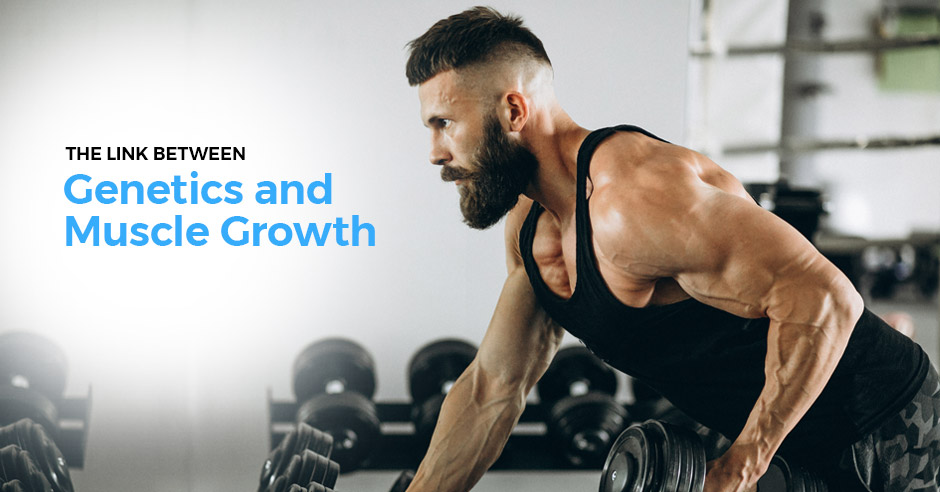Genetics and Individual Differences in Health and Fitness Goals
Explore how genetics influence health and fitness goals. Discover individual differences in achieving a healthy lifestyle. Genetics Blog.

enetics and individual differences play a significant role in achieving health and fitness goals. While genetics can influence factors like metabolism, muscle composition, and susceptibility to certain health conditions, individual differences encompass a broader range of variables, including lifestyle, environment, and personal preferences. Here, we'll discuss the implications of genetics and individual differences on health and fitness goals:
Metabolism and Weight Management
Genetics: Some individuals may inherit a faster or slower metabolism, impacting their ability to lose or gain weight. Genetic factors can also influence how the body stores and burns fat.
Individual Differences: Lifestyle choices, such as diet and physical activity, can modify the impact of genetics. Those with slower metabolisms may need to pay closer attention to calorie intake and engage in regular exercise to manage their weight effectively.
Muscle Development:
Genetics: Genetic factors can affect muscle fiber composition, which may influence an individual's potential for muscle growth and strength.
Individual Differences: Even with genetic predispositions, training methods, intensity, and consistency can help individuals maximize their muscle development potential.
Nutritional Requirements:
Genetics: Genetic variations can affect nutrient absorption, dietary preferences, and food sensitivities, which can influence an individual's nutritional needs.
Individual Differences: Tailoring one's diet to accommodate genetic factors and addressing individual dietary preferences and restrictions can optimize nutrition for health and fitness.
Response to Exercise:
Genetics: Genetic variations can influence an individual's response to different types of exercise, affecting factors like endurance, strength, and injury susceptibility.
Individual Differences: Selecting the right exercise regimen that aligns with one's genetic predispositions and adjusting it based on individual progress and goals is essential.
Health Risks:
Genetics: Genetic predispositions can increase the risk of certain health conditions, such as heart disease, diabetes, or obesity.
Individual Differences: Lifestyle choices, including diet, physical activity, and stress management, can mitigate these genetic risks and promote overall health.
Psychological Factors:
Genetics: Genetic factors can also influence mental health and motivation, affecting an individual's ability to stay committed to fitness goals.
Individual Differences: Incorporating strategies like goal setting, social support, and stress management can help individuals overcome psychological barriers to achieving health and fitness goals.
Adaptability and Resilience:
Genetics: Some people may be genetically predisposed to recover more quickly from exercise or injury.
Individual Differences: While genetics play a role, lifestyle choices, including rest, recovery techniques, and injury prevention measures, can enhance adaptability and resilience.
Aging Process:
Genetics: Genetic factors can influence the rate of aging and the development of age-related health issues.
Individual Differences: Maintaining a healthy lifestyle, including regular exercise, a balanced diet, and stress management, can slow the aging process and reduce the impact of genetic predispositions.
In summary, genetics and individual differences are intertwined in the pursuit of health and fitness goals. While genetics provide a blueprint, lifestyle choices and environmental factors can significantly shape outcomes. It's essential to understand one's genetic predispositions, but equally important to adapt strategies that suit individual differences to achieve and maintain optimal health and fitness. Consulting with healthcare and fitness professionals can help individuals create personalized plans that consider both genetic and individual factors.
Goal Setting and Realistic Expectations:
Genetics: Genetic factors can influence the rate of progress and the extent to which certain goals can be achieved.
Individual Differences: Setting realistic and achievable goals is crucial. Understanding one's genetic predispositions can help individuals set targets that align with their potential, preventing frustration and disappointment.
Tracking Progress:
Genetics: Genetic testing and analysis can provide insights into factors like nutrient metabolism or injury susceptibility.
Individual Differences: Regularly tracking progress through tools like fitness apps, body measurements, and performance metrics can help individuals make data-driven adjustments to their fitness plans based on their unique needs and responses.
Personalized Training and Nutrition:
Genetics: Advances in genetic testing can offer personalized recommendations for exercise and nutrition based on genetic profiles.
Individual Differences: Utilizing such genetic insights alongside individual preferences can result in highly tailored fitness and dietary plans that maximize effectiveness and sustainability.
Environmental Factors:
Genetics: Environmental factors can interact with genetics in complex ways, influencing health and fitness outcomes. For example, exposure to certain pollutants may exacerbate genetic predispositions to respiratory issues.
Individual Differences: Awareness of environmental influences and making choices to minimize negative impacts, such as selecting clean air environments or avoiding excessive pollution, can support health and fitness efforts.
Social and Cultural Considerations:
Genetics: Cultural and social factors can affect dietary choices and physical activity levels.
Individual Differences: Recognizing the impact of one's cultural background and social environment is essential. Adaptation and integration of healthy habits within one's cultural context can make fitness and nutrition more sustainable.
Genetic Testing and Counseling:
Genetics: Genetic testing services are becoming more accessible, allowing individuals to gain insights into their genetic predispositions.
Individual Differences: It's important to seek professional guidance when interpreting genetic test results. Genetic counselors and healthcare providers can provide personalized recommendations and address concerns related to genetic health risks.
Long-Term Health and Aging:
Genetics: Genetics play a role in determining an individual's susceptibility to age-related conditions, such as osteoporosis or cognitive decline.
Individual Differences: A lifelong commitment to health and fitness, combined with genetics-aware strategies, can promote better aging outcomes and potentially delay the onset of age-related health issues.
In conclusion, genetics and individual differences are intricately linked in the pursuit of health and fitness goals. While genetics provide a baseline, individual choices, lifestyle, and environmental factors are equally significant. Recognizing the interplay between genetics and individuality, and making informed choices based on both, can help individuals optimize their path to better health and fitness outcomes. Seeking guidance from healthcare professionals and staying informed about emerging genetic research can further enhance one's ability to achieve and maintain their health and fitness objectives.
Behavioral Changes and Habits:
Genetics: Genetic predispositions can influence an individual's susceptibility to certain behaviors, such as addictive tendencies or risk-taking behavior.
Individual Differences: Recognizing one's genetic inclinations toward certain behaviors can empower individuals to implement strategies for behavioral change, such as seeking support groups or therapy to address underlying factors.
Genetic Diversity and Variation:
Genetics: The human population is highly diverse genetically, leading to a wide range of individual differences in responses to exercise, nutrition, and health interventions.
Individual Differences: Embracing the diversity of genetic backgrounds means that what works for one person may not work the same way for another. This underscores the importance of personalized approaches to health and fitness.
Ethical and Privacy Considerations:
Genetics: Genetic testing can reveal sensitive information about health risks and ancestry, raising ethical and privacy concerns.
Individual Differences: It's essential for individuals to be aware of the potential implications of genetic testing, including the security of their genetic data. Understanding the terms and conditions of genetic testing services is crucial.
Community and Social Support:
Genetics: Genetic predispositions may affect an individual's need for social support in pursuing health and fitness goals.
Individual Differences: Building a supportive network of friends, family, or fitness communities can be especially beneficial for those who may require extra encouragement due to their genetic or psychological makeup.
Evolution and Adaptation:
Genetics: Human genetics have evolved over millennia in response to environmental challenges.
Individual Differences: Recognizing that our genes have adapted to specific conditions in the past can motivate individuals to make health-conscious choices in today's modern environment, which may differ significantly from our ancestors' lifestyles.
Mental Resilience and Mindset:
Genetics: Genetic factors can influence an individual's predisposition to stress, anxiety, or depression, which can affect the ability to adhere to fitness routines.
Individual Differences: Developing mental resilience through practices like mindfulness, meditation, or cognitive-behavioral therapy can help individuals overcome genetic tendencies toward negative emotional states and improve their overall well-being.
In summary, genetics and individual differences are multifaceted and dynamic factors in the pursuit of health and fitness goals. Embracing both genetics and individuality empowers individuals to make informed choices, set realistic expectations, and adapt their approaches to optimize their health and fitness journeys. Moreover, understanding the broader implications, including ethical and social considerations, enhances the overall effectiveness and sustainability of one's efforts to achieve and maintain a healthy lifestyle.
What's Your Reaction?

















